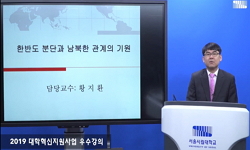본 연구는 공동내집단정체성과 타인초점 조망수용의 조합이 외집단 구성원에 대한 공감과 외집단 전체에 대한 우호적 행동의도를 증진한다는 가설을 남북한 관계 맥락에서 검증하였다. 한...
http://chineseinput.net/에서 pinyin(병음)방식으로 중국어를 변환할 수 있습니다.
변환된 중국어를 복사하여 사용하시면 됩니다.
- 中文 을 입력하시려면 zhongwen을 입력하시고 space를누르시면됩니다.
- 北京 을 입력하시려면 beijing을 입력하시고 space를 누르시면 됩니다.

남북한 관계에서 외집단 공감에 대한 공동내집단정체성과 조망수용 초점의 상호작용효과 = The Interaction Effect of Perspective-Taking Foci and Common Ingroup Identity on Outgroup Empathy in the Context of North-South Relations in Korea
한글로보기https://www.riss.kr/link?id=A109605340
- 저자
- 발행기관
- 학술지명
- 권호사항
-
발행연도
2025
-
작성언어
Korean
- 주제어
-
등재정보
KCI우수등재
-
자료형태
학술저널
- 발행기관 URL
-
수록면
49-73(25쪽)
- DOI식별코드
- 제공처
-
0
상세조회 -
0
다운로드
부가정보
국문 초록 (Abstract)
본 연구는 공동내집단정체성과 타인초점 조망수용의 조합이 외집단 구성원에 대한 공감과 외집단 전체에 대한 우호적 행동의도를 증진한다는 가설을 남북한 관계 맥락에서 검증하였다. 한국(남한) 학부생을 대상으로 실시한 두 편의 연구에서 남북한 공동내집단정체성인 한민족정체성을 측정(연구 1)하거나 조작(연구 2)하고 조망수용의 초점을 자기 또는 타인으로 조작하였다. 두 편의 연구에서 일관되게, 한민족정체성이 우세한 경우 외집단(북한이탈주민)에 대한 타인초점 조망수용 조건에서 자기초점 조망수용 조건보다 대상 인물에 대한 공감 수준이 높았고, 이는 외집단인 북한이탈주민 전체에 대한 우호적인 행동의도를 예측하였다. 반면 남한정체성이 우세한 경우에는 외집단에 대한 조망수용 초점에 따른 공감 수준에서 차이가 없었다. 이 결과를 토대로, 남북한처럼 장기간에 걸친 적대적 상호작용이 우세한 집단 간 관계에서 외집단 태도를 개선하고 집단 간 화해를 촉진하는 기제로서 외집단 공감의 역할에 관하여 논하였다.
다국어 초록 (Multilingual Abstract)
The current research examined the interplay between common ingroup identity and two different types of perspective-taking (self-focused vs. other-focused) on outgroup empathy and positive intergroup behaviors in the context of North-South relations in...
The current research examined the interplay between common ingroup identity and two different types of perspective-taking (self-focused vs. other-focused) on outgroup empathy and positive intergroup behaviors in the context of North-South relations in Korea. Two laboratory studies were conducted with South Korean undergraduates. Study 1 measured levels of common ingroup identity (‘Han’ ethnicity), while Study 2 manipulated the salience of common ingroup identity among the participants. Both studies also independently manipulated the two types of perspective-taking. In both studies, we found evidence that other-focused perspective-taking enhanced outgroup empathy (cognitive empathy in Study 1, affective empathy in Study 2) to a greater extent than did self-focused perspective-taking when participants had a strong common ingroup identity. By contrast, when common ingroup identity was weak, the impact of the two types of perspective-taking on outgroup empathy did not differ from each other. Moreover, outgroup empathy positively predicted favorable intergroup behavioral intentions (in Study 2), indicating that the interactive effect of common ingroup identity and other-focused perspective-taking toward outgroup members indirectly predicted positive intergroup behavior. We discuss the implications of our findings for the role of outgroup empathy in the context of intractable intergroup conflict and reconciliations.
동일학술지(권/호) 다른 논문
-
사회비교, 물질주의, 그리고 불안이 미혼 청년의 결혼의향에 미치는 영향 탐색
- 한국사회및성격심리학회
- 장류미
- 2025
- KCI우수등재
-
- 한국사회및성격심리학회
- 이예영
- 2025
- KCI우수등재
-
대학생 대상 한국판 다문화 성격 척도 단축판(K-MPQ-SF)의 타당화 및 문화적 적용
- 한국사회및성격심리학회
- 한나
- 2025
- KCI우수등재
-
- 한국사회및성격심리학회
- 최상민
- 2025
- KCI우수등재




 KCI
KCI



